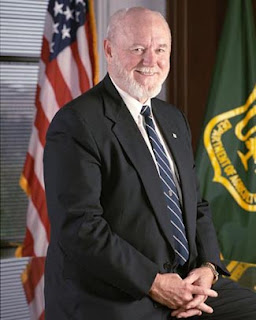He took me camping, backpacking, trout fishing, taught me to identify trees and other plants, got me involved in Boy Scouts and shared with me all of his enthusiasm, knowledge, love and respect for the natural world. He not only inspired me to cherish all things wild and free, but encouraged me to speak up for and defend the things I love.
In other words: He greatly influenced and shaped not only who I am, but my core values, beliefs and what I do for a living. He was a wonderful and amazing man.
I’ve been taking my own son, Cory, fishing since before he can remember. Once, when he was 12, I took him on a four-day backpack trip into the Selway Bitterroot Wilderness along the Montana-Idaho border. He has Duchenne Muscular Dystrophy, but at that time could still cover close to two rugged miles a day with a pack on – up and down rocks, over and under downed trees, through thick brush, across creeks and atop snowfields. But the going was slow.
One of the nice things about going slow is that I started paying closer attention to all the smaller things that make up the big, beautiful wild – the glacier lilies, swamp marigolds and shooting stars; the new light-green growth on the subalpine firs and the little three-pointed, mouse tail-looking bracts protruding from the Doug fir cones; the tiny splotches of green, yellow and orange lichens on black and white granite and rhyolite, and the colorful inch-long westslope cutthroats darting away from our shadows as we waded through little creeks.
At one point we talked about how all the little springs and snow-fed creeks we crossed led to Bear Creek, which flows to the Selway, which merges into the Clearwater and into the Snake, on to the Columbia and into the Pacific. About then, in a muddy spot between a melting patch of snow and a creek, we came upon fresh bear tracks and scat. Cory smiled and brought up my long joked about “dream” of someday going through the digestive system of a grizzly to fertilize the grasses and forbs that elk eat – “Which is only fair,” I tell him, “considering all the elk I’ve killed and eaten.” Or, as Cory so simply puts it: “Dad wants to be bear poop.”
Then came the question: “Dad, if you like elk and bears so much, why don’t you work for a group that protects elk or bears instead of trout?” (I was working for Trout Unlimited at the time.) So we talked about watersheds, and the need to protect, restore and reconnect watersheds to have clean, clear water for the wild trout, salmon and steelhead he (like his dad) loves to fish for. Like his grandfather loved to fish for. Like my grandfather liked to fish for. “Protecting watersheds, I explained means “saving all the parts,” including flowers, plants, trees, birds, bees, elk and bears.
He looked at me and asked: “So when you protect trout, you also protect elk and bears?”
Bingo!
That night, aside a beautiful high alpine lake, over the red hot coals of a fire, we cooked wild trout caught by Cory.
For everyone of us the past connects to the present and on to the future — a legacy of anglers, hunters and conservationists taking care of the wild places, wildlife, fish and the waters we cherish. Fathers play a huge role in that. The simplest little moments in life can make a huge difference.
So fathers: Take your kids fishing and enjoy — You never know how far it might go. And happy father’s day!



